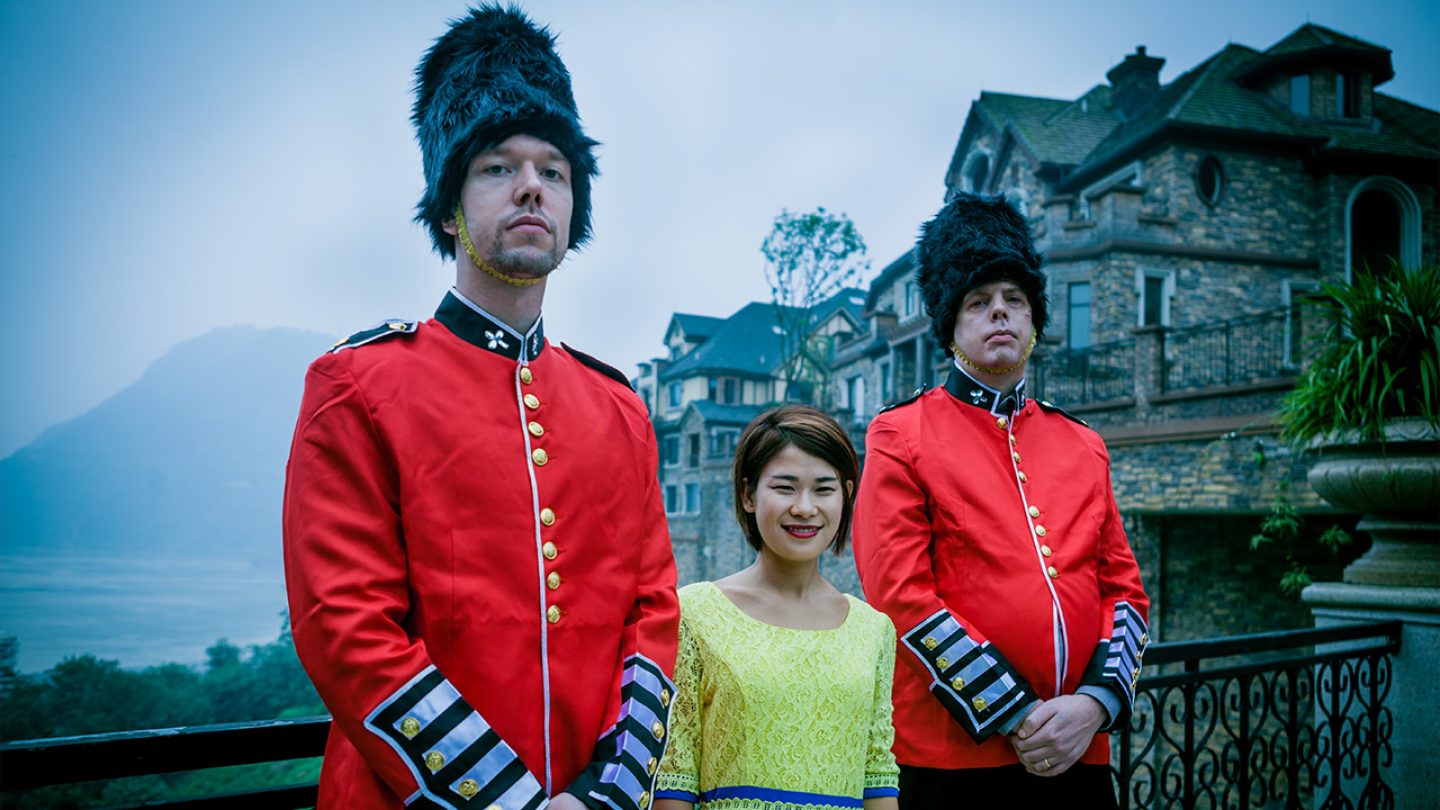
At which point have you decided to make a film about your experiences?
It came really naturally. I was studying the phenomenon of housing boom in China and I started filming for my research. I thought it was a good opportunity to learn more about this subject as an employee of Yana. In the beginning I was filming seven or eight people. But even if you have an interesting topic, it doesn’t become a meaningful film until you have a unique protagonist and story. I only started to realize in the second year how inspiring was the character of Yana. She was emotionally very open and honest, much more than the other characters. That’s when I decided to make the film. A disadvantage of this is that there’s a little bit of dissonance between the opening footage and the footage fifteen-twenty minutes after since the beginning isn’t as professional as the rest of the movie. The advantage, though, is that the whole perspective of the film can be gained through having a real relationship with the character. This could only be achieved through actually being there, knowing Yana for many years and working with her.
You step out of the traditional observer position by sharing your own experiences with us. Why did you choose to be the narrator of your film?
There were two reasons. I tried to make it without me as a narrator, but while editing the film it turned out to be helpful. First of all, it was for a better understanding. On one hand, the film is about the white monkeys and the company that organized these gigs. On the other hand, it is a film about the Chinese house bubble. As there were two storylines going on, I needed a narrator who connected these two ties together to then understand how the events are related. I was studying and analyzing the Chinese housing bubble while I was performing in these gigs myself, so I chose myself. I also started to realize that the idea of objectivity is fake. There is always this fact that you are there. The positionality of the director has a profound impact on the kind of events you capture, because everything is perceived through the director’s eyes. I tried to do it in a more standard way, but as I was finishing the film I came to the conclusion that it is much more honest and valuable to include the director’s perspective.

photo: Balázs Ivándi-Szabó
The story ends with the collapse of Yana’s dream world. Did it really happen as it is depicted in the film or was it highlighted because of the end of the narrative?
The narrative of the film was based on what happened to her. That was the part of the film, but only because she went through it. She grew up, she became three years older – she became brand new. She came from the countryside, she had all sorts of hopes and ideas of what life is like which were ultimately challenged and sometimes even shattered by the realities of the city. She also had to face the machinery of the communist party propaganda. By the end of the film she had totally different ideas of what the reality is like.
Dream Empire demonstrates the huge prestige of West in China. How does the cult of the West fit into the narratives of national consciousness and efforts?
There is no one big answer for that. Whenever my film is screened in China we end up discussing this question for two hours even because it’s a very sensitive and contradictory subject for them. On one hand, they worship the West in many ways. For them it is synonymous with progress and prosperity. That’s why the developers in the movie want to show symbols of the West. On the other hand, there are lot of cases of nationalist sentiment there and the average contemporary Chinese is very proud of their five thousand years of history. At the same time, it is being taught perpetually that China is weak right now. The country has to catch up with the West and the only people who are capable of doing this is the Communist Party. Whenever officials give speeches, it is emphasized repeatedly that China is glorious, but weak compared to the West.
How was the reception of the film?
It attracted a huge audience in China. It was probably one of the most widely-seen documentaries from a foreigner about China. It was reviewed in most of the newspapers and even the hard-line nationalist newspaper mentioned it positively. According to their interpretation the film proved that even a foreigner staying in the country could observe that Chinese have to be more nationalistic. There are some assertive policies, but others are relatively accepted in China. There are a few topics you can’t talk about: you can’t talk about minorities, the personal lives of the top-leaders, Taiwan or Hong Kong in any way. However, the question is only how you talk about it. This film has invented the term “white monkey” and everyone knows it now. This word created a whole conversation in what it means to be Chinese compared to the West. But it is more important that it started a discussion about how empty are the promises of development and economic growth. It has got to a point where the abundant GDP growth does not benefit anyone anymore. These performances are a metaphor for Chinese economic growth: they are dazzling, but empty.
Are you still in touch with Yana and the others?
Yeah, I am, a lot of festivals invited Yana and me. The first one came from DOK.fest in Munich. It was not only her first time to leave China, but also the area where she lives. She has never been to Beijing or Shanghai. It was really cool, Dream Empire was the opening film of the festival, and there was an audience of around 2000 people. I remember her face saying it all, she just couldn’t believe being there. Last summer I also shot a white monkey party film in China. These people were all my friends, actually I grew up with them. We share a common period in our lives.. That’s also why the objective approach was impossible for me.

Are you planning to shoot new films in the future?
I am working on two projects right now. One is on internet trolls from their own perspective. The film is a little bit controversial, because these trolls are really violent towards women. But I try to understand them and figure out how this ugliness comes from a human being. Then the other one I am working on is a story about live streaming and youtube celebrities in China. This phenomenon of mass media is quite new in China, but it has already become a new of way propaganda advertising. It is not filtering the people through news anymore, but through individual internet celebrities, and that’s how even kids are reached by the Communist Party.
Panni Nagy